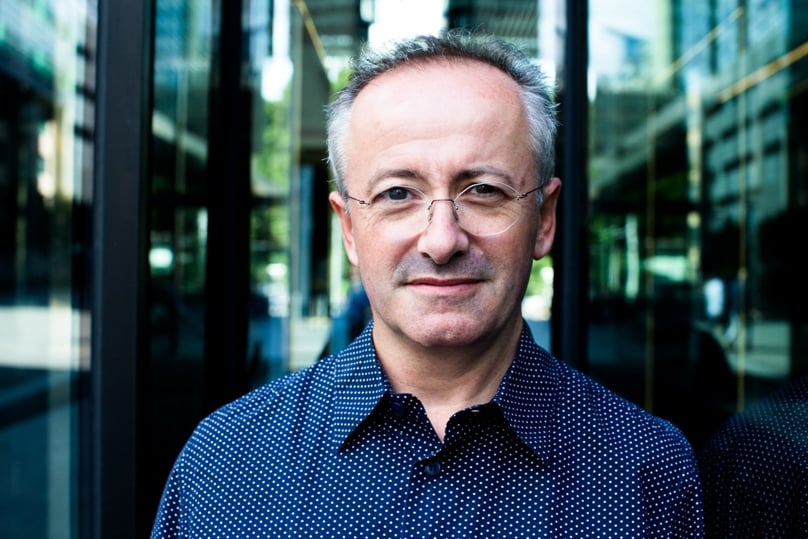
TV personality Andrew Denton has launched an extraordinary attack on what he has described as a “subterranean Catholic force” preventing the legalisation of euthanasia, saying that a network of Catholic politicians, business people and institutions constituted a “theocracy within our democracy”.
Mr Denton gave a speech to the Press Club, last week, in which he urged people of religious belief to vacate the public space so that euthanasia could be passed, something he said more than 70 per cent of Australians would support.
He cited the experience of watching his father die of heart failure, struggling to breathe as fluid filled his lungs – “like waterboarding” – as being pivotal in his decision to spend the last few years in developing his advocacy for the change.
But the director of the Sydney archdiocese’ Life, Marriage and Family Centre, Chris Gordon, said that Mr Denton was conveniently forgetting the experience of other countries such as the Netherlands, and the flow-on effects of legalised killing.
“People are being killed against their will in countries that have legalised euthanasia,” Mr Gordon said.
“Mr Denton conveniently makes no mention of the statistics on euthanasia from the Netherlands where it has been available since 1973.
“In 1990, 8,100 Dutch people died when doctors deliberately gave them an overdose of pain medication. 4,941 of these patients did not consent to the overdose.
continued from p1
“In the same year 1040 Dutch were euthanised without their knowledge or consent, 748 of them had given no indication of wishing their lives to be terminated.”
In his address, Mr Denton spoke about the successful cross-party campaign in 1996 among federal parliamentarians – “largely Catholics” – to quash legislation that legalised euthanasia in the Northern Territory.
“The joint operation was led on the Liberal side by a young Kevin Andrews, a leading member of the conservative Lyons Forum, dubbed by some ‘The God Squad’, who worked in tandem with rising Labor star Tony Burke,” Mr Denton said.
(Neither MP responded to requests for comment.)
Mr Gordon said he rejected any attempt to preclude religious Australians from the debate, particularly when the welfare and survival of the most vulnerable was at stake.
“Mr Denton criticises us for running a scare campaign but the statistics do not lie.
“The safeguards associated with voluntary euthanasia in the Netherlands have failed. I don’t see why the same will not happen here in Australia.”
Mr Denton said there needn’t be a trade-off between good palliative care and physician-assisted suicide, saying that both were required and both deserved adequate funding.
“It is simply a myth to suggest that palliative care, no matter how many resources it has, can deal with all suffering and distress at the end of life.
“In their own words, Palliative Care Australia (PCA) says that even with optimal care they cannot deal with all pain and suffering at the end of life.”
PCA had not responded to requests for comment by the time of printing, but an article on its website, ‘Expert opinion: the euthanasia debate,’ by Palliative Care South Australia chair, Dr Mary Brooksbank, said that the debate on euthanasia should not be had until palliative care was adequately funded and available to all.
“I can understand why people want to alleviate suffering at the end of life, and why they think voluntary euthanasia might be a compassionate way of achieving that,” Dr Brooksbank wrote.
“But with good palliative care, no-one needs to die in unbearable pain, whether they die at home, hospice or hospital. I’m not sure that advocates of euthanasia really understand that.
“Sadly, in Australia, a small number of people do experience pain while dying expected deaths. There is no denying that painful deaths occur. There are complicated cases, where people have pain that is generated in ways that are very difficult to turn off.
“There are times when people will need a palliative care specialist and a full palliative care team to help support them through.
“But no-one dying an expected death needs to die in extreme, agonising pain. If they do, it’s because they haven’t had access to good quality palliative care.
“They should have had that access … To me, there is no confusion between the concepts of caring for someone and that of ending their life.
“Although I understand that some people want that sense of control at the end of their lives, for me the time to have this debate is when everyone has access to good quality palliative care.”
